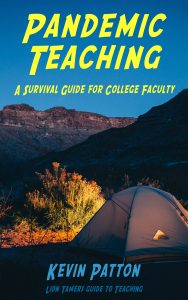| Assistant letting a lion into the arena |
Anybody in the entertainment industry knows that the term "solo performer" does not mean that only one person is involved in presenting what you are seeing and hearing. This is absolutely true in lion taming as well. One person may take the spotlight, but a coordinated team effort is required to successfully train and present a lion or tiger act.
During training, assistants inside and outside the practice arena are needed to supply treats (usually bits of fresh meat), position props, and move animals into and out of the arena. These assistants usually help guide each animal during training and practice, meaning that more than one person is actually training the animals. Sometimes an assistant guides one animal and the lion tamer another animal as they learn a behavior that requires two animals acting at the same time.
During a performance, sometimes it's the assistant helping to cue a particular animal to leave its seat and move to the middle of the arena, to enter or exit the arena, or stay put on their seat during another animal's time in the center. The assistants keep watch on the seated animals so that the lion tamer can focus on the animal(s) performing at the moment. Often, it's the assistants to rush to help diffuse a dangerous situation if it arises.
The best lion tamers are those who know that they alone cannot pull it off. They are the lion tamers who spend extra time and energy building a team that can effectively work together.
Likewise, the best teachers are those who know how to use the team approach successfully.
I've known teachers who do not respect other professionals involved in the learning process and fail to involve them in the learning process effectively. Which often adversely affects the quality of learning in their courses.
For example, do we go out of our way to include library professionals, safety officers, maintenance and housekeeping staff, learning specialists, accessibility teams, and others in our planning and execution of our teaching?
If we don't develop the habit of including ideas from--and enlisting active cooperation from--our teaching team, then we run the risk of being "eaten alive" when things don't go as planned.
Here are a few ideas to get started in team thinking.
- Library professionals are often eager to assist in researching content updates and new teaching approaches. They're often willing to walk our students through the "how-to" methods of doing research for their class projects. I've had librarians help me keep an eye out for new books and new articles that I'm likely to find interesting or useful.
- Safety officers can help us plan some strategies in dealing with aggressive students or other potential hazards. Developing a good relationship with your safety team makes all of you more comfortable and confident as you "perform" your daily work.
- Maintenance and housekeeping staff, when made part of your team, are often willing to assist you in keeping your classroom spaces "just the way you like them" to facilitate teaching and learning. They often have some great ideas for making your space even better! By having a working relationship with them, you are more likely to get the help you need--and get it right away--when things go wrong.
- Learning specialists and accessibility staff often have some useful tips and shortcuts, especially when dealing with challenging students and challenging groups.


No comments:
Post a Comment